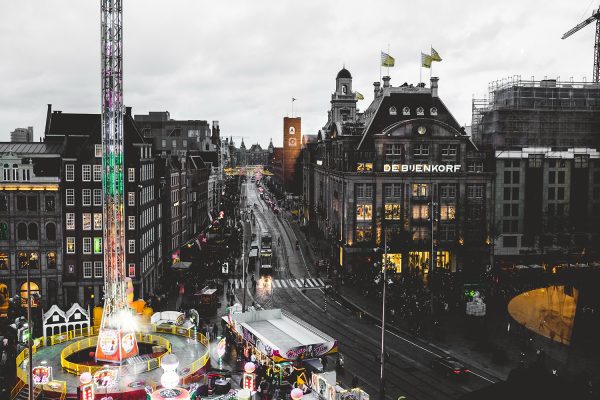
Regular readers may remember I wrote in May about Amsterdam’s plan to ban the sale of cannabis to tourists. At the time, Mayor Femke Halsema argued a ban would help reduce drug tourism.
Studies have since found it won’t, so the mayor has found a new argument: licensed cannabis retailers are linked to organized crime.
Cannabis expert Nicole Maalsté and I have written a joint op-ed in response for Het Parool, the newspaper of Amsterdam. I’ll summarize our arguments here for non-Dutch readers.
Maalsté does research into medical marijuana at the University of Utrecht and runs the advisory Acces Interdit.
Most weed smokers are foreign
Contrary to stereotype, the Dutch smoke less weed than most Europeans. Amsterdam’s 168 so-called coffeeshops, named after the coffeehouses where weed was sold illegally prior to decriminalization, mainly tailor to tourists. Of the 22 million who visited Amsterdam in 2019, the last full year before the pandemic, 5 million bought cannabis in a coffeeshop. (The figures include Dutch visitors from outside Amsterdam, but most tourists are foreign.)
Residents complain about noise and smell. They should blame the government. Amsterdam used to have more than 400 coffeeshops. The city closed over half, including those in the overcrowded Red Light District and near schools. The national government banned indoor smoking of tobacco. The remaining 168 coffeeshops got busier and there is more smoking outside.
City doubles down
Rather than acknowledge restricting supply didn’t reduce demand, and license more coffeeshops, so the noise and the smell would disperse, the city is doubling down by proposing to restrict demand (from foreigners).
Polls suggest this won’t work. One was taken by the city government in the Red Light District, a popular tourist destination; another citywide and paid for by the Amsterdam association of cannabis retailers. Both found that four in ten tourists who buy drugs in Amsterdam would stay away if Halsema got her way. But another 40 percent would come anyway and buy weed illegally. The remaining 20 percent aren’t sure.
According to the mayor, there are thousands of drug dealers who sell cocaine and MDMA in Amsterdam every weekend, mostly to foreigners. (If they’re lucky: two in three sell fake drugs.) If tourists couldn’t buy cannabis legally, many would turn to criminals to buy it illegally.
Mayor finds new excuse
Halsema accepts the risk, and in a letter to the city council introduces a new argument to ban tourists from coffeeshops: some stores would be linked to organized crime. Evidence for this was shared with the council in confidence.
Maalsté and I argue that, if cannabis retailers are connected to drug gangs, the city should just shut them down. It doesn’t need a ban. Dutch mayors have the power to shutter coffeeshops on the mere suspicion of criminality.
Stopping all coffeeshops from selling to tourists, when only a few might be breaking the law, is not just overkill; it’s unfair to the vast majority of cannabis retailers who — as far as we know — are doing their best to comply with rules that the city and national government keep changing.
